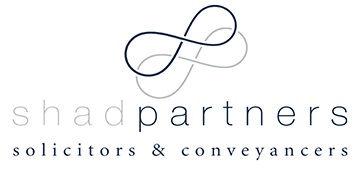Key features
A trust is an obligation imposed on a person (the trustee) to hold property or income for the benefit of others (the beneficiaries). A trustee is responsible for the operation of the trust. A trustee can be an individual, partnership or a company. There are a number of laws which govern how a trustee must perform his or her obligations to the trust. The primary obligation of a trustee is to act in the best interests of the beneficiaries of the trust.
Trusts are set up for a number of reasons, including family and charitable purposes. For business purposes, the most common types of trusts are:
- Discretionary trusts (also called a family trust): The trustees of a discretionary trust are able to distribute income and capital gains to beneficiaries in whatever way they desire. There is no fixed entitlement for each and every beneficiary.
- Unit trusts: A unit trust is like a company where the trust property is divided into a number of shares called units. The number of units held by each beneficiary determines his or her entitlement to a share of assets and income.
- Hybrid trusts: are a cross between a Discretionary and a Unit Trust. Beneficiaries hold a defined amount of units but the trustee has the discretion to vary each beneficiary’s entitlements and income.
How to set up a trust
A formal deed is required to set up a trust. A trust deed outlines the purpose of a trust, the property involved, the rights and obligations of the trustee and beneficiaries and how assets will be distributed to the beneficiaries. It is recommended that a trust deed be prepared by a solicitor.
A trust must have its own Australian Business Number (ABN), which can be obtained online through the Australian Business Register.
A trust must also have its own Tax File Number (TFN), which can also be obtained online from the ATO.
A trust must be registered for GST if annual turnover is $75,000 or more.
Trusts that run a business must complete a tax return, showing the income the trust earns, deductions it claims and the amount of income distributed to each beneficiary.
Pros and cons
The advantages of a trust structure include:
- Flexibility in how income is distributed
- Tax planning flexibility, including income splitting
- Asset protection
- Beneficiaries are generally not liable for the debts of a trust
- Beneficiaries of a trust pay tax on the income they receive from the trust at their own marginal tax rates
- A trust is more private than a company
The disadvantages include:
- A trust is a complex legal structure, which is expensive to set up and run
- There are considerable legal and compliance requirements
- There can be inflexibility, as powers are restricted by the trust deed and the law
- It can be difficult to make changes to the structure once it is set up
Conclusion
A trust might be an appropriate structure if a business venture will involve a sizeable amount of property and money. That is because a trust can be beneficial in protecting assets and minimising taxation obligations. Trusts are also a common structure choice for family businesses because various family members can be made beneficiaries of the trust that is operating the business.
A trust is the most complex of all the business structures, with complicated tax implications and legal and compliance requirements. As such, it is highly recommended that advice is sought from a solicitor to check whether a trust suits your circumstances.
If you or someone you know wants more information or needs help or advice, please contact us on 02 9790 7000 or email [email protected].
